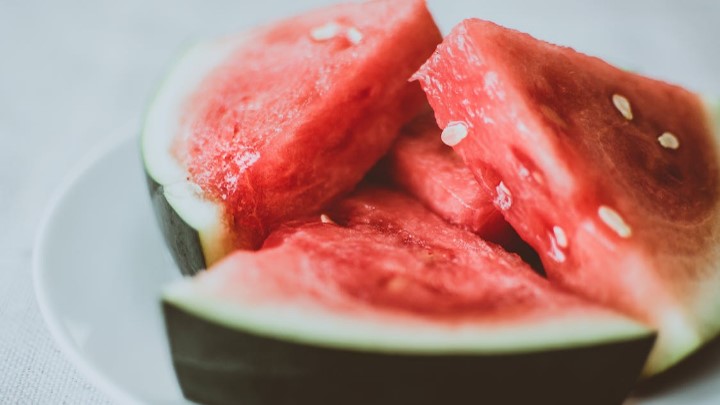Are you craving a refreshing and nutritious snack to beat the heat? Look no further than watermelon! This fruit of summer is not only tasty and hydrating, but it also contains a wealth of vital vitamins and minerals that can improve your health and general well-being.
In this article, we’ll dive into the top watermelon nutrition facts that make this fruit a must-have for any healthy diet. In fact, there are a lot of benefits of Ayurveda medicine that many people are yet to discover.
First things first, let’s talk about watermelon’s most famous feature: its high water content. As its name suggests, watermelon is composed mostly of water, making it an ideal snack for hot days when dehydration is a concern. But watermelon’s benefits go beyond mere hydration. One cup of diced watermelon contains:
Watermelon Nutrition Facts
- 46 calories
- 0.2 grams of fat
- 11.5 grams of carbohydrates
- 0.9 grams of fiber
- 1 gram of protein
- 21% of the recommended daily intake of vitamin C
- 18% of the recommended daily intake of vitamin A
- 5% of the recommended daily intake of potassium
- 4% of the recommended daily intake of magnesium
As you can see, watermelon is a fruit that is low in calories and high in nutrients that can help you achieve your daily requirements for vitamins and minerals. Vitamin C and vitamin A, in particular, are powerful antioxidants that can protect your cells from damage and boost your immune system. Potassium and magnesium, on the other hand, are essential minerals that regulate your blood pressure, support your heart health, and maintain healthy muscles and bones.
But that’s not all. Watermelon also contains other beneficial compounds that can enhance your health. For example, it’s rich in lycopene, a carotenoid pigment that gives watermelon its pink and red color. Lycopene has been linked to a reduced risk of certain types of cancer, as well as improved cardiovascular health and vision. Watermelon also contains citrulline, an amino acid that can improve blood flow and reduce muscle soreness after exercise.
Benefits of Watermelon
Watermelon is a delicious and refreshing fruit that is also packed with nutrients and health benefits. Here are some of the top benefits of watermelon:
- It’s high in essential nutrients. Watermelon is a good source of vitamins A and C, potassium, and magnesium. Vitamin A is important for vision and skin health, vitamin C is an antioxidant that helps protect the body from damage, potassium is important for blood pressure control and muscle function, and magnesium is important for bone health, nerve function, and muscle contraction.
- It’s a good source of lycopene. Lycopene is a powerful antioxidant that has been shown to have a number of health benefits, including reducing the risk of cancer, heart disease, and macular degeneration. Watermelon is one of the best food sources of lycopene.
- It’s hydrating. Watermelon is about 92% water, making it a great way to stay hydrated, especially on hot days.
- It supports healthy digestion. Watermelon contains dietary fiber, which is important for digestive health. Fiber helps to keep the digestive system moving and can also help to prevent constipation.
- It may help with weight management. Watermelon is low in calories and high in water and fiber, making it a good choice for people who are trying to lose weight or maintain a healthy weight.
- It may boost your workout. Watermelon contains citrulline, an amino acid that has been shown to improve athletic performance. Citrulline is converted to the amino acid arginine in the body, which helps to increase blood flow and oxygen delivery to the muscles.
- It may protect against chronic diseases. Watermelon contains antioxidants that can help to protect the body from damage caused by free radicals. Free radicals are unstable molecules that can contribute to the development of chronic diseases such as cancer, heart disease, and Alzheimer’s disease.
So, whether you enjoy watermelon as a refreshing snack, a juicy dessert, or a hydrating drink, you can rest assured that you’re getting a lot of bang for your buck. But don’t just take our word for it. Try incorporating watermelon into your diet and see how your body feels. You might just find yourself craving this sweet and juicy fruit all year long!
In Conclusion
Watermelon is a nutritious powerhouse that can offer numerous advantages to your health and well-being. Its high water content, low-calorie count, and rich vitamin and mineral profile make it an excellent snack choice for anyone looking to eat healthy and stay hydrated. So go ahead, indulge in a slice of watermelon, and savor the taste of summer!



